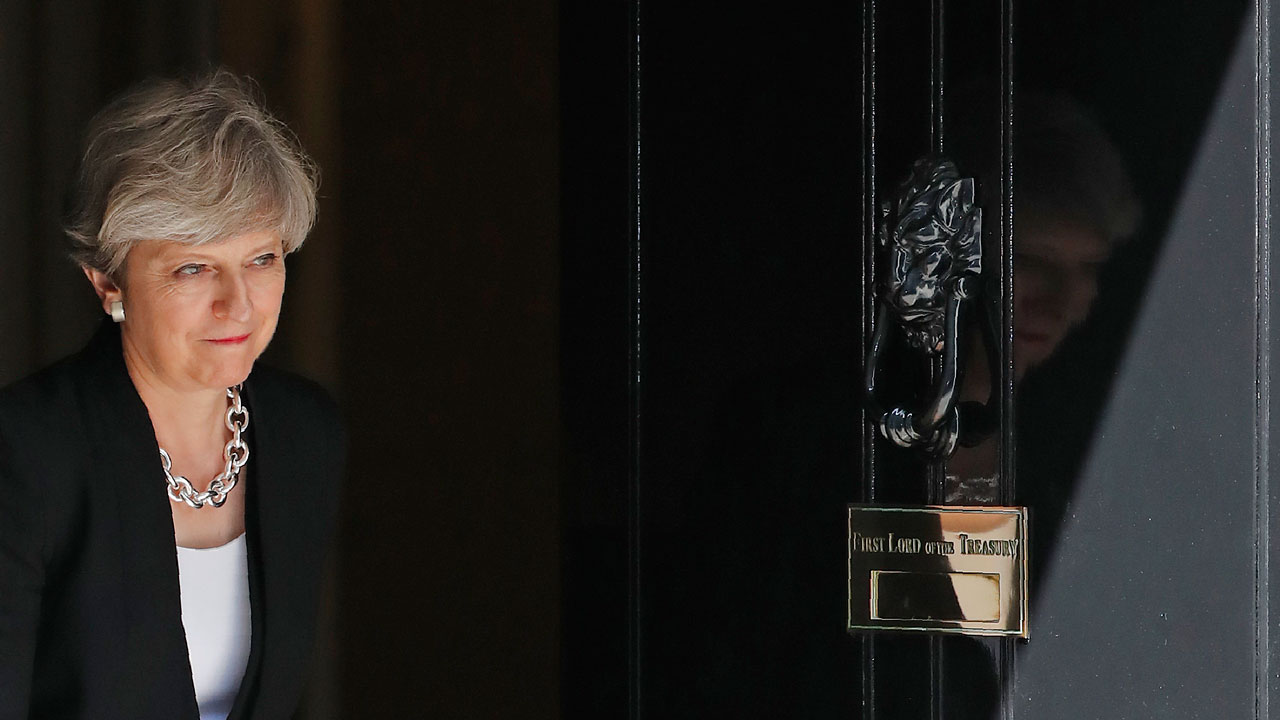
British Prime Minister Theresa May’s programme for government is revealed at the formal opening of parliament on Wednesday after an election that weakened her authority and tragedies that have shaken the nation.
Queen Elizabeth II will read out the watered-down policy and lawmakers will spend the next few days debating before bringing it to a vote, leaving the government very vulnerable just as it embarks on highly sensitive Brexit negotiations.
After four terror attacks and a devastating fire that have darkened the national mood, protesters are also planning a “Day of Rage” in the streets against May’s Conservatives.
The Times branded her administration the “stumbling husk of a zombie government” and said May was now “so weak that she cannot arbitrate between squabbling cabinet ministers”, who are increasingly publicly divided over Brexit.
“Downing Street is a vacuum,” the newspaper said.
May called the June 8 snap general election in a bid to strengthen her mandate heading into the Brexit talks.
But the plan spectacularly backfired, leaving her with a minority government requiring the support of Northern Ireland’s ultra-conservative Democratic Unionist Party.
May has resisted calls to resign and is hoping for the support of the DUP’s 10 MPs to boost her tally of 317 seats in the 650-seat parliament, but a deal has proved elusive so far.
A DUP source said a deal was “certainly not imminent” as the talks “haven’t proceeded in a way that the DUP would have expected” and cautioned that the party “can’t be taken for granted”.
Even with DUP backing, the government would still command only a tiny majority and just a few rebel MPs could be enough to undermine it fatally.
The Queen’s Speech, normally a chance for a new government to show off an ambitious programme, will reportedly be very pared down this time in order to avoid any potential splits in Conservative ranks.
The event is usually a high point of British pomp and pageantry, but this year there will be no horse-drawn carriage procession, crown, or ceremonial robes.
The snap election plus the closeness to the monarch’s official birthday parade last weekend meant it was deemed infeasible to prepare a second major event at short notice.
The Queen’s Speech was initially planned for Monday but had to be postponed due to the turmoil following the election.
‘De facto’ confidence vote
“This Queen’s Speech is about recognising and grasping the opportunities that lie ahead for the UK as we leave the EU,” May said.
“It is about delivering a Brexit deal that works for all parts of the UK while building a stronger, fairer country.
“The election result was not the one I hoped for, but this government will respond with humility.”
The speech will be followed by several days of debate by MPs, culminating in a vote expected on June 29 which one parliamentary official confirmed acts as a “de facto vote of confidence” in May’s minority government.
Opposition parties are reportedly planning to table a series of amendments, including changes to housing legislation following a devastating fire in a local authority-owned tower block earlier this month.
Other amendments are reportedly linked to Brexit, calling for easier access to the European single market and a commission with opposition parties and civil society figures to discuss Brexit strategy.
There are no fixed rules on what happens if an amendment is passed to the Queen’s Speech but the government would normally be expected to resign.
The results of the election mean that a coalition of opposition parties would struggle for enough support to form a viable alternative government, however, and there is little appetite in Britain for yet another election.
The government has said this session of parliament will last two years — meaning there would be no Queen’s Speech next year — in order to be able to pass a vast amount of Brexit-related legislation.
But opposition parties have said it is a way of avoiding the government being voted down in a Queen’s Speech next year when talks in Brussels get tough ahead of Britain’s expected EU exit in March 2019.



